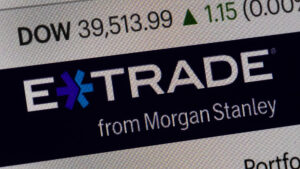IT ALLOWS COMPANIES to “inject an ideological agenda through our economy”, says Florida’s governor, Ron DeSantis. It “empowers an unelected cabal of bureaucrats…to rate companies based on their adherence to left-wing values,” says Mike Pence, a former vice-president. According to a letter from 19 Republican governors, it encourages the “proliferation of woke ideology”. Several states have passed laws to limit it. The villainous concept is environmental, social and governance (ESG) investing. It is an approach that investors use to make decisions that includes considerations such as a company’s carbon emissions, its policies on sexual harassment and diversity among its board members. ESG, along with gas stoves and some books, has been caught up in America’s culture wars. Why?
The term ESG first appeared in 2004. In C-suites chatter about the concept has increased rapidly in more recent years. Research by AlphaSense, a data firm, published in the Wall Street Journal, shows that American executives mentioned ESG or adjacent topics, such as sustainability and DEI (diversity, equity and inclusion), 170 times during earnings calls in the first quarter of 2018. By the first quarter of 2022 that figure was 942. Net inflows to “sustainable funds” rose from $5.4bn in 2018 to $69.8bn in 2021, according to Morningstar Direct, a data firm.
The term has entered public consciousness: McKinsey found that internet searches for ESG increased fivefold between 2019 and 2022. A study published in 2021 by researchers at Northwestern University in Illinois found that positive ESG news related to a company’s core business, such as a promise by a coffee company to pay farmers fair prices, caused its share price to rise. The opposite was also true: bad ESG news reduced a company’s share price.
ESG’s supposed wokeness is what got it mixed up in the culture wars. But there are other reasons to criticise the idea, some of which Republican politicians have also seized on. A concept so broad is not useful in helping businesses and investors decide what to do when its objectives come into conflict. (Shutting down a coal mine is good for the climate, not for employees’ well-being.) ESG funds are not always as green as they purport to be. Right-wing critics say companies’ chief concern should be profits. By focusing on extraneous issues, such as the environment or diversity, firms are straying from their core responsibility to investors, they argue. (Socially conscious firms might retort that, by attacking ESG, politicians are straying from the public realm to interfere in their business decisions.)
Proponents of ESG investing say that it benefits the bottom line, helping investors to understand the long-term risks a company faces. If governments start taxing carbon, for example, companies that emit lots of the stuff will suffer more than greener rivals. Unethical practices can also damage a company. Without an understanding of a company’s ESG performance, advocates argue, investors are ill-equipped to make good decisions.
But the political attacks on ESG seem to be working—at least in a superficial sense. Mentions of ESG on earnings calls have fallen: in the second quarter of 2023, the concept was mentioned 575 times, down by 39% from the first quarter of 2022. Companies that are committed to ESG are perhaps just being quieter about it.
Accusing America’s executives of wokeness is odd: according to a Harvard Business School paper published last year, nearly 70% of top American executives are Republicans. But that has not stopped the party from attempting to curb those executives’ power. In March Republican congressmen (with the help of two Democratic senators) passed a law that would have prevented pension-fund managers from using ESG criteria to make investment decisions. President Joe Biden vetoed it. His administration is doubling down on ESG. In March 2022 the Securities and Exchange Commission, America’s main financial regulator, proposed requiring companies to provide certain climate-related information in their registration statements and reports (though the plan’s implementation has been delayed). The divide over ESG is here to stay.









